The EU leaders agree on the European Stability Mechanism
Ralitsa Kovacheva, December 16, 2010
 The EU leaders have agreed on a limited amendment of the Treaty on the Functioning of the EU (TFEU) in order to create a permanent stabilisation mechanism for the euro area - European Stability Mechanism (ESM). This is written in the draft conclusions of the European Council, circulated by media. It is most likely these amendments to be endorsed as they are written because they were sent in advance to the member states for coordination.
The EU leaders have agreed on a limited amendment of the Treaty on the Functioning of the EU (TFEU) in order to create a permanent stabilisation mechanism for the euro area - European Stability Mechanism (ESM). This is written in the draft conclusions of the European Council, circulated by media. It is most likely these amendments to be endorsed as they are written because they were sent in advance to the member states for coordination.
To Art.136 of of the TFEU (Treaty on the Functioning of the EU), which refers to the euro area countries, will be added the following paragraph: “The Member States whose currency is the euro may establish a stability mechanism to safeguard the stability of the euro area as a whole. The granting of financial assistance under the mechanism will be made subject to strict conditionality.”
The mechanism will be established through an intergovernmental agreement 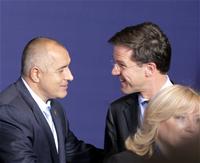 among euro area countries and “will be activated by mutual agreement of the euro area member state in case of risk to the stability of the euro area as a whole.” The countries outside the monetary union may be included in the mechanism if they want to and whenever they decide, on an ad hoc basis.
among euro area countries and “will be activated by mutual agreement of the euro area member state in case of risk to the stability of the euro area as a whole.” The countries outside the monetary union may be included in the mechanism if they want to and whenever they decide, on an ad hoc basis.
The Treaty change should come into force on January 1, 2013. It does not increase the competences of the Union and can be made under the simplified procedure provided for in Article 48 (6) TEU (Treaty of the European Union). This means that, although it must be approved by all Member States, the referenda can be avoided.
As to the design of the Mechanism, the details aren't more than those that have already been reported by the Eurogroup (the finance ministers of the eurozone countries) which euinside already wrote about.
The leaders of the 27 Member States arrived in the Council building under 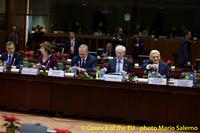 pouring rain. It was interesting that German Chancellor Angela Merkel and French President Nicolas Sarkozy refused to speak to the journalists at the entrance. Most of the leaders who spoke supported the establishment of the Mechanism, but denied that Germany had a dominant role on the issue. The Greek Prime Minister Georgios Papandreou made an impressive statement, by saying that every leader must take his (her) own responsibility.
pouring rain. It was interesting that German Chancellor Angela Merkel and French President Nicolas Sarkozy refused to speak to the journalists at the entrance. Most of the leaders who spoke supported the establishment of the Mechanism, but denied that Germany had a dominant role on the issue. The Greek Prime Minister Georgios Papandreou made an impressive statement, by saying that every leader must take his (her) own responsibility.
Read more about the meeting of EU leaders in Brussels tomorrow on euinside.
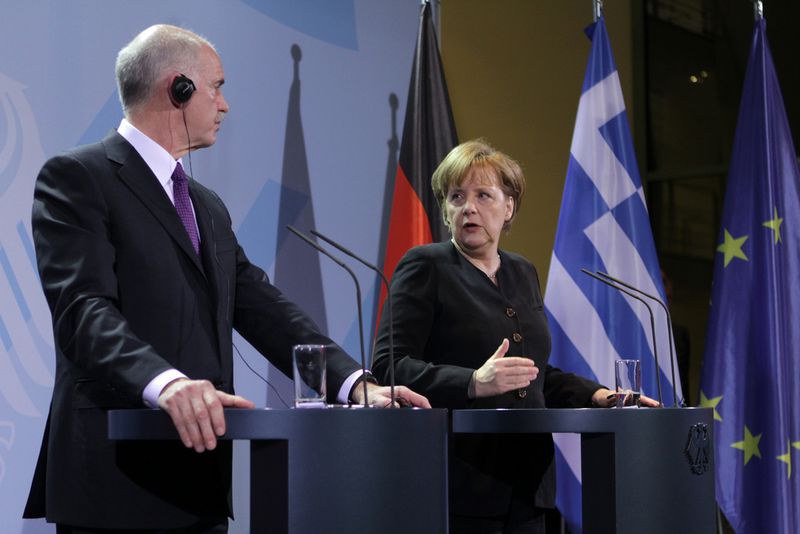 | © www.primeminister.gov.gr
| © www.primeminister.gov.gr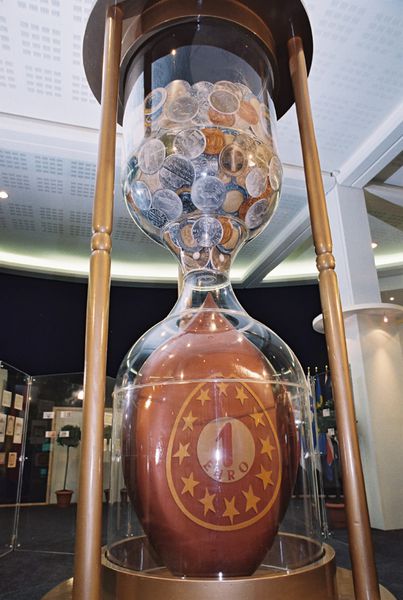 | © European Commission- Audiovisual Service
| © European Commission- Audiovisual Service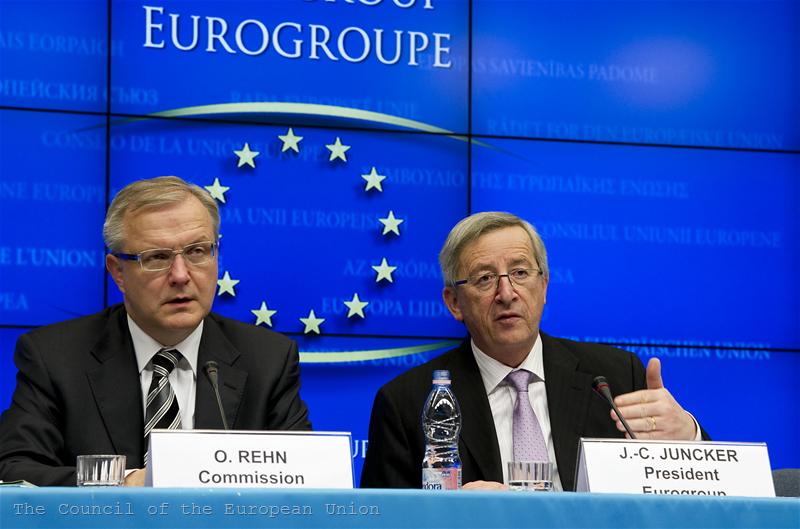 | © The Council of the European Union
| © The Council of the European Union